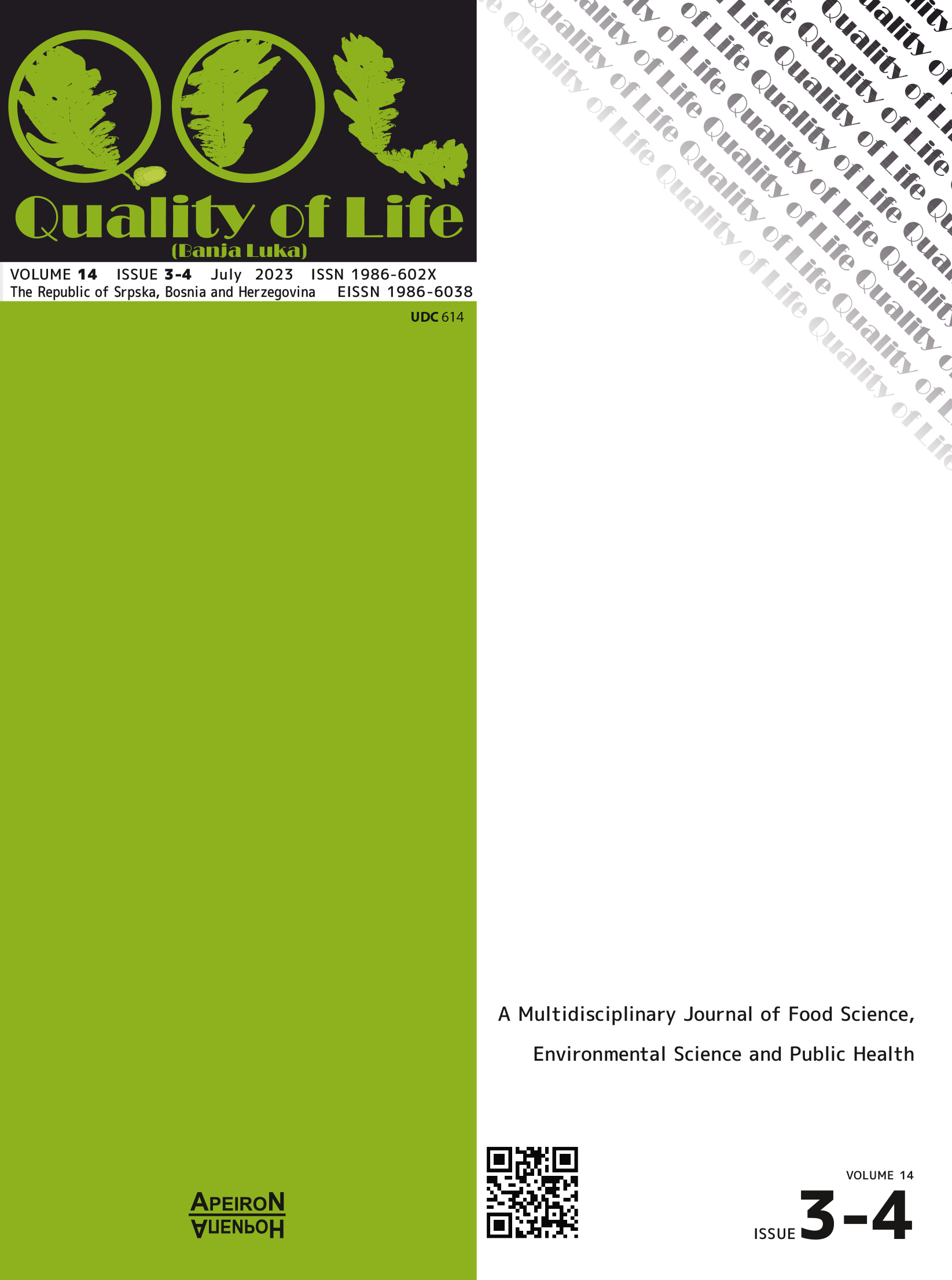Lifestyles and Risk Factors for Developing NCDS Among Students of Health Sciences in Republic of Srpska
DOI:
https://doi.org/10.7251/QOL2303110SAbstract
Lifestyles develop throughout the life, but adolescence and early youth are important stages in acquiring healthy lifestyles habits. This is also vulnerable period for substance misuse, worsened diet habits and sedentary lifestyles linked to academic activities and responsible for developing non communicable diseases (NCD). Goal of the article is to analyse lifestyles habits and risk factors for developing NCD among students of health sciences. Study is conducted at the University Apeiron, Faculty of Health Sciences among students from first to fourth years of study. Specially designed questionnaire was prepared and distributed on line, anonymously and voluntary fulfilled by students. Every fifth student is smokers, 5,1% consume alcohol daily, more males (12,1%) than females (2,9%) (p<0,05). Majority of males (42,2%) consumed alcohol drinks in one occasion during previous month, statistically more than females (21.2%) (p<0,05). More than two third of students eat fruits and vegetables daily and one third have regular meals. Moderate physical active are 42,3% of students, and physical inactive are more females than males (p<0,05). Risk factors for NCD have to be prevented with supportive policies in school environment and community. Students of health sciences should be a positive model of changing risk habits for NCD and saving future quality of life.
